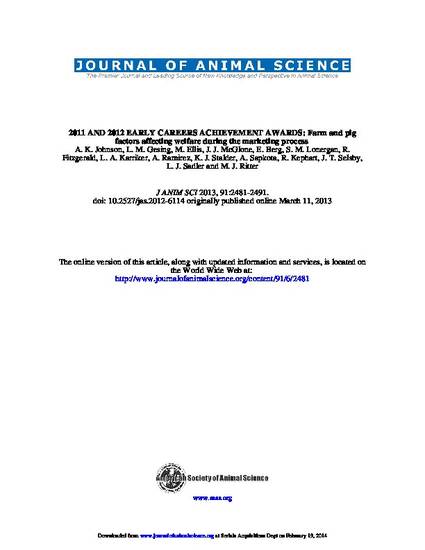
The objective of this paper is to review the scientific literature to identify on-farm factors that contribute to market weight pig transportation losses. Transportation of market weight pigs is an essential element to the multisite pork production model used in the United States. In 2011 alone, approximately 111 million market weight pigs were transported from the finishing site to the abattoir. For pigs, the marketing process can present a combination of potentially novel, physical, and/or unfamiliar experiences that can be stressful. If the pig cannot cope with these sequential and additive stressors, then an increased rate of transportation losses could occur with a detrimental effect on pork carcass value. Current yearly estimates for transport losses are 1 million pigs (1%). A variety of market weight pig and farm factors have been reported to detrimentally affect transportation losses. By understanding how pigs interact with their environment during marketing, researchers, producers, and personnel at the abattoir may begin to identify, prioritize, and attempt to minimize or eliminate these stressors. This process will ultimately decrease transportation losses, improve pork quality, and increase profitability.
Available at: http://works.bepress.com/kenneth_stalder/126/

This article is from Journal of Animal Science 91 (2013): 2481–2491, doi:10.2527/jas.2012-6114.